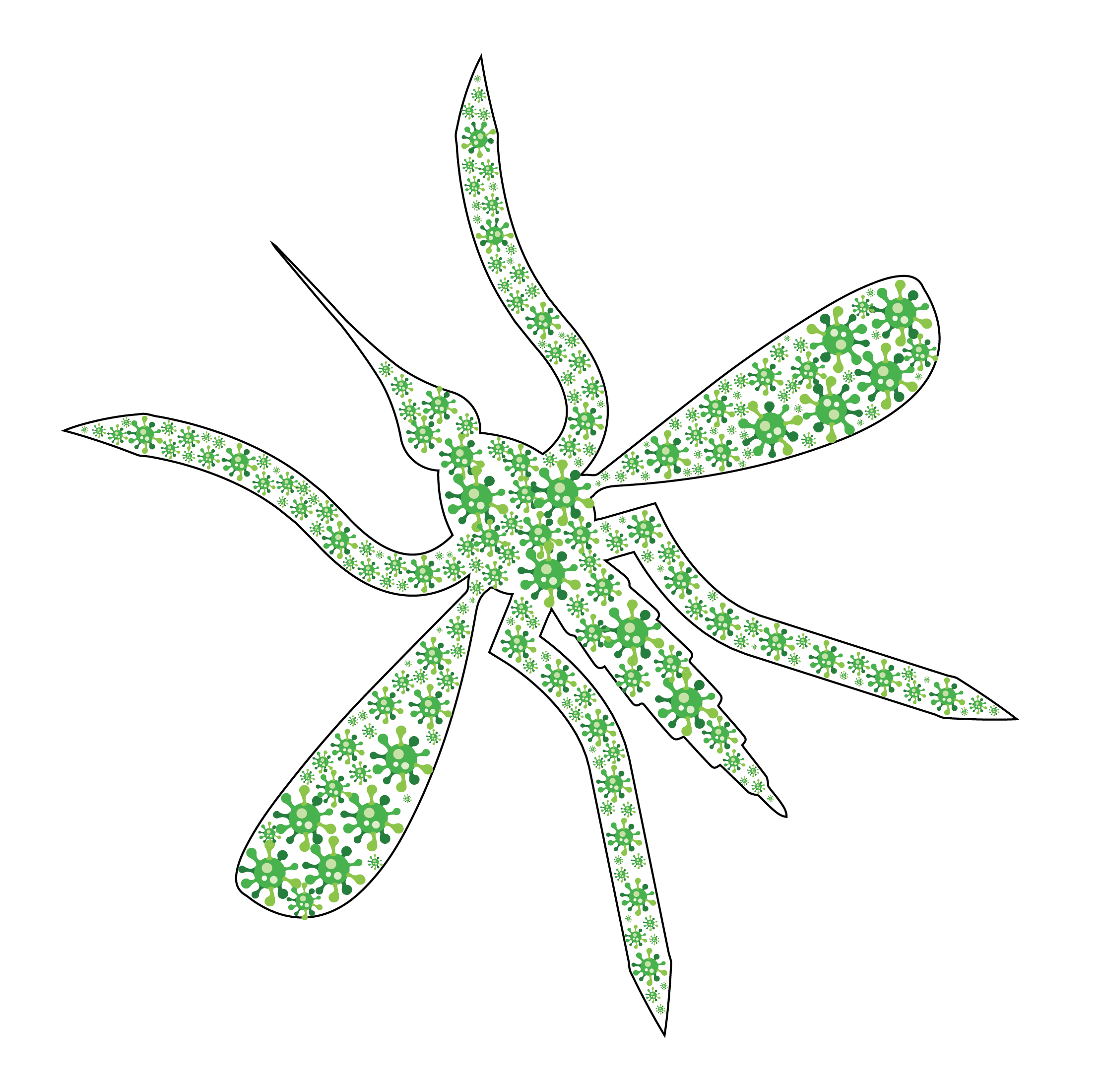EU Mosquito-Borne Virus Questionnaire
Mosquitoes and their Breeding Sites
There are over 30 different mosquito species in Europe. Most of these mosquitoes are local mosquitoes species, there are however also some exotic mosquito species that have established themselves in Europe. These exotic mosquito species have been introduced by for example mosquito eggs on cargo ships or mosquitoes in planes.
Most mosquito species bite during the night, therefore screen doors and bed nets are good prevention measures against mosquito bites. However, some of mosquito species, among which the Asian tiger mosquito, also bite during the day. Therefore, wearing long sleeved trousers and shirts or using mosquito repellant (DEET) are good additional prevention measures.
Only female mosquitoes bite humans, they need blood to lay their eggs. They lay these eggs in stagnant water. These eggs grow to be adult mosquitoes in approximately 14 days. Therefore, another useful prevention measure is to remove stagnant water in and around your house every week. In this way you remove potential mosquito breeding sites. This website shows you the most common breeding places in and around your house
Source picture: NVWA website
Mosquito-borne viruses
Some mosquito species are able to transmit viruses. A mosquito can be infected with a virus after biting an infected animal or human. If this infected mosquito then bites another human, they might transmit the disease. If you get bitten by an infected mosquito you do not always get sick. The number of people who get sick, and the type of symptoms you might show depend on the virus. On this website you can find out more about the different types of mosquito borne viruses.
In Europe, infections with mosquito borne viruses are not common, but the number of cases have been increasing in the past few years. Therefore, some basic knowledge on how to prevent and recognize mosquito borne virus infections can be useful.
The best way to reduce the chance of getting a mosquito borne virus is by using prevention measures so you don’t get bitten by a mosquito. If you get bitten, chances are low you will contract a mosquito borne virus. However, if there are some cases in your area, and you start showing flu-like symptoms it is wise to contact your general practitioner. Have you travelled abroad to a country where mosquito borne viruses are prevalent? and have you fallen ill when you got back? Then it is wise to tell your general practitioner where you have travelled to.

How will we use the questionnaire results
Your participation in our questionnaire study has given us valuable information about your perceptions of mosquitoes and mosquito-borne viruses.
With this information we hope to have good input for communication campaigns about mosquito-borne viruses. By building these campaigns based on your input we can assure they match the needs of the public. This also helps us give insight into which prevention measures people are willing to use, this helps us model the influence of interventions on potential outbreaks.
If you want to learn more about our project, take a look at the rest of the website. Are you interested in helping us with more data collection? Read more about how you can become a citizen scientist below.
Get involved in more mosquito research
Do you want to help with research into mosquitoes and check for breeding sites in your own backyard? By taking pictures of mosquitoes you captured in and around your house you can help experts map the abundance of different mosquito species in Europe. You can also help by being involved with our Dutch travel study or our European-wide citizen science project.



